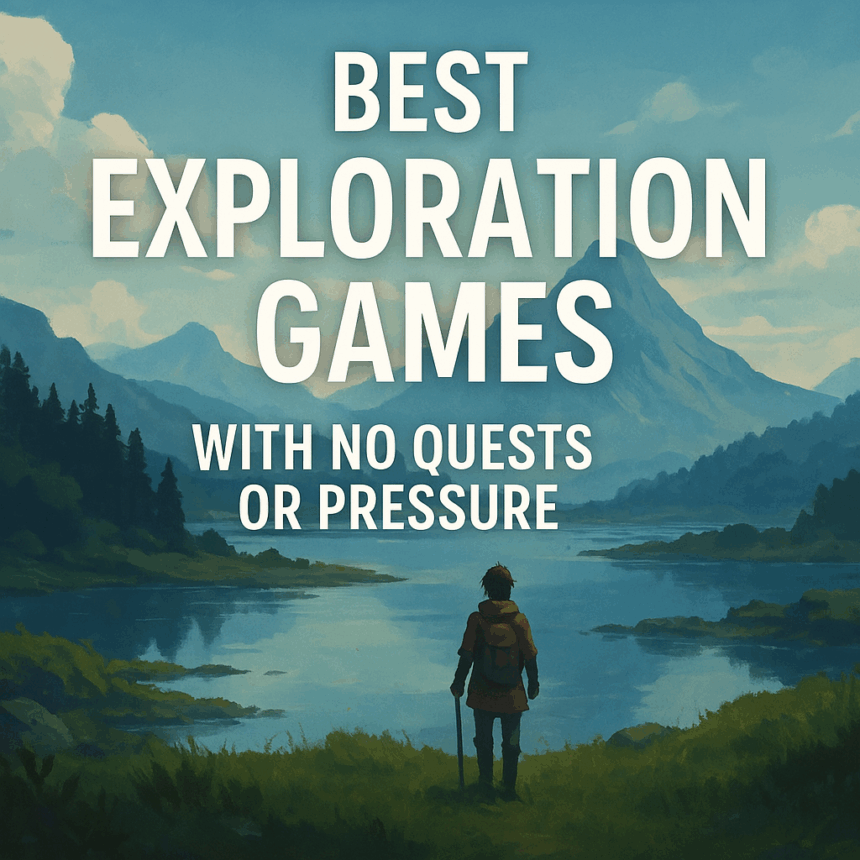In this article, I will discuss the Best Exploration Games With No Quests Or Pressure—ideal for those who prefer calm, unrestricted gaming sessions.
These titles allow you to stroll to your heart’s content, revealing the world’s beauty and soothing yourself in fully captivating environments.
If you are looking for an escape, or if you are new to gaming, these games provide anxiety-free adventures worth experiencing.
Key Point & Best Exploration Games With No Quests or Pressure
| Game | Key Point |
|---|---|
| ABZÛ | Serene underwater exploration with beautiful visuals and no combat or tasks. |
| Eastshade | Peaceful painting adventure through a scenic open world with no enemies. |
| Journey | Meditative desert exploration with minimal UI and optional co-op interaction. |
| The Long Dark | Custom survival settings allow calm solo exploration of a frozen wilderness. |
| Proteus | Audio-visual walking experience in a world that reacts to your movement. |
| Feather | Relaxing bird flight simulator with soothing music and no goals. |
| Islands: Non-Places | Surreal, dreamlike scenes with no objectives—just observe and reflect. |
| Everything | Play as anything—from atoms to galaxies—in an expansive philosophical world. |
| Shape of the World | Abstract, ever-changing environment that encourages free-form exploration. |
| Tchia (Exploration Mode) | Explore a vibrant tropical island with climbing, sailing, and gliding—no pressure. |
1. ABZÛ
In ABZÛ, individuals immerse themselves in an ocean world full of hidden relics and ancient mysteries, and sunken dragons. The game features zero combat and time limits as players are free to float and interact with memorabilia.
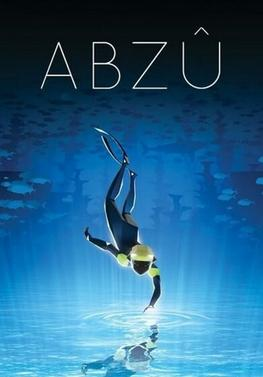
ABZÛ combines, “zû” and, “ab”, to give hints at its relaxing components. The game is exactly one of the best exploration games with no quests or pressure, ABZÛ is visually poetic and undertone drenched.
The game’s production score makes the experience feel surreal and enhances the oceans dance. Like Journey, ABZÛ’s art was designed by the same individual and the game soothes the eyes to magnificence while asking nothing from the player.
ABZÛ
Pros:
- Stunning graphics and rich marine life
- Striking underwater scenery and marine life
- Orchestral soundtrack
- Peaceful for all ages; highly intuitive control schemes
Cons:
- Short play time of 2 to 3 hours
- Short play time results in a lack of replay value
- Exploration is the only focus with little to no interaction
2. Eastshade
Eastshade puts you in the shoes of a wandering artist who is exploring an island filled with beauty and wonder. Instead of fighting or surviving, your goal is create; capturing the beauty in nature with paint.

This game revolves around wanting to explore and interact in a peaceful manner. Among the best exploration games with no quests or pressure, Eastshade stands out for its vision and grace. Engage the charming locals, trek around the forests, and find beautiful spots to paint.
The island responds to you positively, kindling your simple curiosity without any risk, making it an activating and joyful journey into the slow-life, spur you to create freely.
Eastshade
Pros:
- Painting skill allows for creativity
- Peaceful and calm non-violent world
- Meaningful interactions with NPCs
- Beautifully crafted detailed world-building with rich scenery
Cons:
- Poor performance on lower-end devices
- Slow pacing
- Minor bugs in questing and navigation
3. Journey
Journey is an emotional trek through rolling dunes and mystical ruins. It is a wordless story and a lesson in minimalistic game design. Players soar over sand and scale massive structures. There are no battles or quests; only primal exploration.
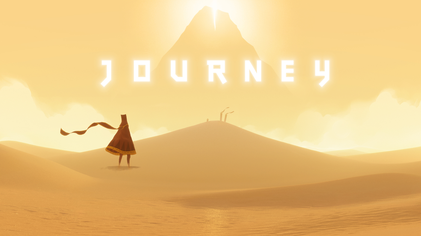
Together with best exploration games with no quests or pressure, Journey excels at optional anonymous co-op where a player might join your journey. There is no talking, but players speak through movement and presence.
The journey is underscored with an orchestra that crescendos alongside your actions, turning it into a poem. It is a journey of introspection, rather than results. The frustrating simplistic design is masked by calm beauty.
Journey
Pros:
- Visually stunning and emotionally powerful
- Co-op play without the introduction of names
- Minimalist aesthetic offers broad appeal
- No other world introduces elements of anonymity quite like Journey
Cons:
- Short Duration of around Two hours
- Absence of traditional gameplay elements
- Absence of clear direction
4. The Long Dark (Custom Exploration Mode)
Most people associate The Long Dark with its brutal survival mechanics, but the Custom Exploration Mode allows for a more tranquil, meditative stroll through the snow-covered landscapes.
This mode removes all the dangers, allowing the player to navigate through the beautifully haunting world filled with abandoned cabins, quiet forests, and frozen lakes.
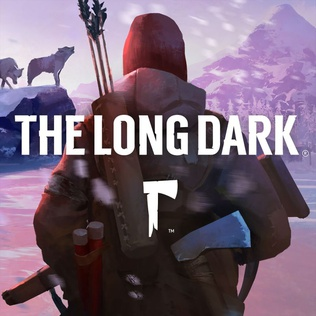
This mode embodies silence, making the player’s thought the only companion, and earns it a spot on the list of best exploration games with no quests and no pressure. There is no combat, no time limits, no story to distract; only the visuals of the game to enjoy in battle-free stillness.
The game’s detailed environments and gentle weather changes provide a breathtaking setting for those that desire to roam aimlessly.
The Long Dark – Custom Exploration Mode
Pros:
- Atmosphere and visuals are deeply immersive and realistic
- Custom settings for a stress-free experience
- Explore a vast wilderness with many locations to discover
Cons:
- UI and mechanics of survival may be overwhelming initially
- Slow pace and backtracking may hinder progress
- A departure from a traditional, linear game progression
5. Proteus
Proteus is an audio-visual poem and offers a minimalist exploration experience. It features pixelated landscapes and a soundscape that responds to your movements.
There are no missions to partake in, no dialogues to listen to, and no inventory to manage; only a sonic and visual world that You coexists with and undergoes seasonal transformations.

As one of the best exploration games with no quests or pressure, Proteus encourages players to free-roam and uncover some semblance of purpose in sounds and sights.
As flowers chime, creatures with musical tones buzz and the world reshapes itself. The dreamlike aesthetic, sensory-focused interaction, and immersion evokes a feeling of a poem that is meant to be played. It centers on the idea of existing, rather than on a definitive goal.
Proteus
Pros:
- One of a kind responsive audio-visual ecosystems
- Stunning seasonal changes
- No formal instructions needed; poetic and intuitive
Cons:
- Critically understated; not for traditional gamers
- Limited interactivity
- Re-playability is undermined by a lack of depth
6. Feather
In Feather, you become a bird flying over an idyllic island at your own pace. You will encounter no foes, no timers, and no goals to achieve. The game focuses solely on your unencumbered flight as serene melodies play in the background.
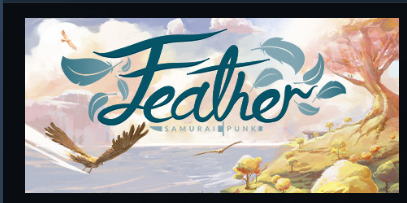
Among the best exploration games with no quests or pressure, Feather is perhaps the most literal interpretation of freedom. You may dip, glide, and soar with no limits as you find hidden caves or glide between tree branches.
Even background music adapts to your movements, ensuring every session remains fresh. The online mode is lag-free, enabling players to cross paths with other birds and join in a wordless ballet of shared solitude in the skies.
Feather
Pros:
- Soothing flight of the birds combined with ambient sounds
- Gentle visuals and control mechanics
- No pressure and no goals means complete liberation
Cons:
- Lacks depth or progression
- Limited geography
- After a long period of play, the game becomes redundant
7. Islands: Non-Places
The work featured: “Islands: Non-Places” combines restoration and self-expression using surreal animation to depict everyday locations and the places they consist of in an extraordinary way.
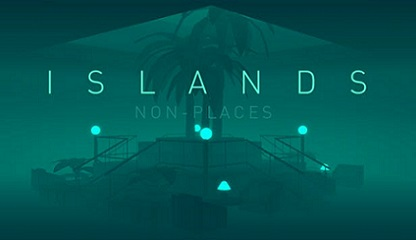
For example, there are vending machines that grow trees, and chairs in the airport that turn into aquariums. This specific piece is one of the “best exploration games with no quests or pressure” It has no goals, no traditional player input or control, and no “observational” joy offered.
This work is visual, akin to a conceptual ‘walk’ in a series of dreamscapes. This is a game without text or instructions that is extremely rewarding to those that are patient and curious. It is strange, brief, pressure-less, and made to be a visual awe and reimagination of the world.
Islands: Non-Places
Pros:
- Abstract and visually arresting
- Ideal for a short, artistic intermission
- Calm, easily navigable interface
Cons:
- Overly brief duration: thirty to forty-five minutes
- No interactivity beyond non-player interaction
- High abstraction may alienate players
8. Everything
Everything allows you to be anything and everything. You can be a goat, a tree, a rock, or even a galaxy. This remarkable sandbox game allows for players to leap object and perspective freely to traverse the universe without constraints.
Everything uniquely redefines the traditional concept of objectives in a video game. It stands out as one of the most impressive and gigantic philosophical exploration games without quests or pressure.

Everything can be considered an existential sandbox. Philosopher Alan Watts narrates the game, encouraging players to ponder the nature of being, existence, consciousness, and what it means to be alive.
Everything pushes the boundaries of a game, encouraging you not to just explore a world but to understand the relationships and interdependencies between systems.
Everything
Pros:
- Revolutionary idea—everything is controllable
- Philosophical commentary by Alan Watts deepens the experience
- Vast, interconnected world is procedurally generated
Cons:
- Complicated for new players
- Repetitive and visually abstract
- Not catered to players who enjoy action or a degree of composition
9. Shape of the World
As you make your way across the distinct biomes of Shape of the World, you experience an abstract, procedurally-generated journey. The environment takes shape around you as you progress: paths form, trees grow, and various creatures take shape.
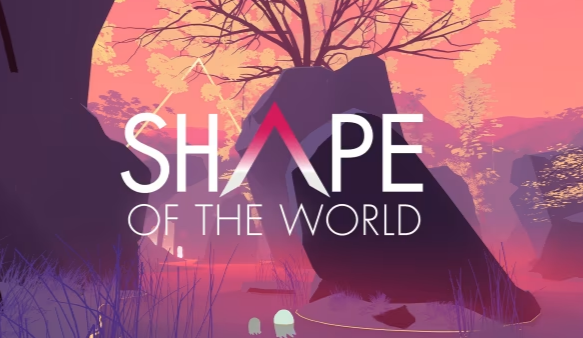
There are no dialogues, no user interfaces, and there is no chance of failing. This game is one of the best for exploring with no quests or pressure. The world responds in a soothing manner as you make your move, offering a different form of reward in the shape of colors and sounds.
The experience is calm and stimulating, akin to walking through a living, breathing painting. There’s no need to rush or think: you make your way and the game lets the world bloom around you.
Shape of the World
Pros:
- Gorgeous environments that change and evolve
- Activates sight and sound.
- Simple to learn and play at any moment.
Cons:
- Little engagement.
- Brief playtime with no significant development.
- Without a goal, gameplay may seem meandering.
10. Tchia (Exploration Mode)
In the game Tchia, based on the culture of New Caledonia, you can glide, climb, swim, and sail on an island that is an open world. In Tchia, playing in Exploration Mode removes any form of fighting and time limits allowing for an absolutely relaxing experience.
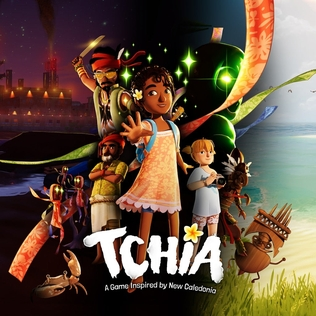
Tchia is one of the best exploration games that have no quests or pressure and is unique in its culture and the mechanics of the game which are fun. While playing, one can soul-jump into objects or animals, sail, or play the ukulele.
The game encourages curiosity, invites players to roam on their own, and connect heritage in nature in a beautifully vibrant world.
Tchia (Exploration Mode)
Pros:
- Beautiful and immersive ethnically inspired world.
- Unique and enjoyable soul-jumping gameplay.
- Wide variety of leisurely pastimes.
Cons:
- Performance issues and bugs from time to time.
- Some light platforming may still be necessary.
- Exploration mode lacks some of the original game’s depth.
Conclusion
✅ Conclusion: Best Exploration Games with No Quests or Breather Pressure
In a market that promotes overly competitive and fast-paced gaming experiences, these exploration games invite the player to casually wander, admire, and simply be.
From gliding in Feather to diving in ABZÛ, painting in Eastshade, or even embodying the universe in Everything, players are granted a safe haven from the world in the form of these games, which are perfect for exploration. Each of these games offers serene environments filled with curiosity and exploration.
These interactive experiences are not limited to gaming; the experiences soothe the player, offering the chance to effortlessly unwind, reflect, or indulge in some mindful gaming.
These games shift the focus from achieving any in-game goals to immersing the player in the aesthetics and the calm of the gaming world. If you prefer a digital escapade that offers these experiences, the best exploration games with no quests or pressure are perfect for you.
FAQ
What defines an “exploration game with no quests or pressure”?
These games emphasize open-ended discovery, movement, or environmental interaction without set objectives, time limits, combat, or required tasks. The focus is on relaxing, observing, and immersing yourself in the world.
Are these games suitable for beginners or non-gamers?
Yes! Most of these titles feature simple controls, no failure states, and calming environments, making them perfect for new or casual players looking for a peaceful experience.
Can I play these games offline?
Absolutely. Games like Eastshade, ABZÛ, Proteus, and The Long Dark (custom mode) are fully playable offline. Some, like Journey and Feather, offer optional online elements.
Do these games have stories or are they just freeform?
Some games like Eastshade and Journey have light or environmental storytelling, while others like Proteus and Feather are entirely freeform and abstract.
Are these games long?
Playtime varies. Games like Everything and Eastshade offer several hours of content, while Proteus and Islands: Non-Places are brief experiences meant to be enjoyed in one sitting.


